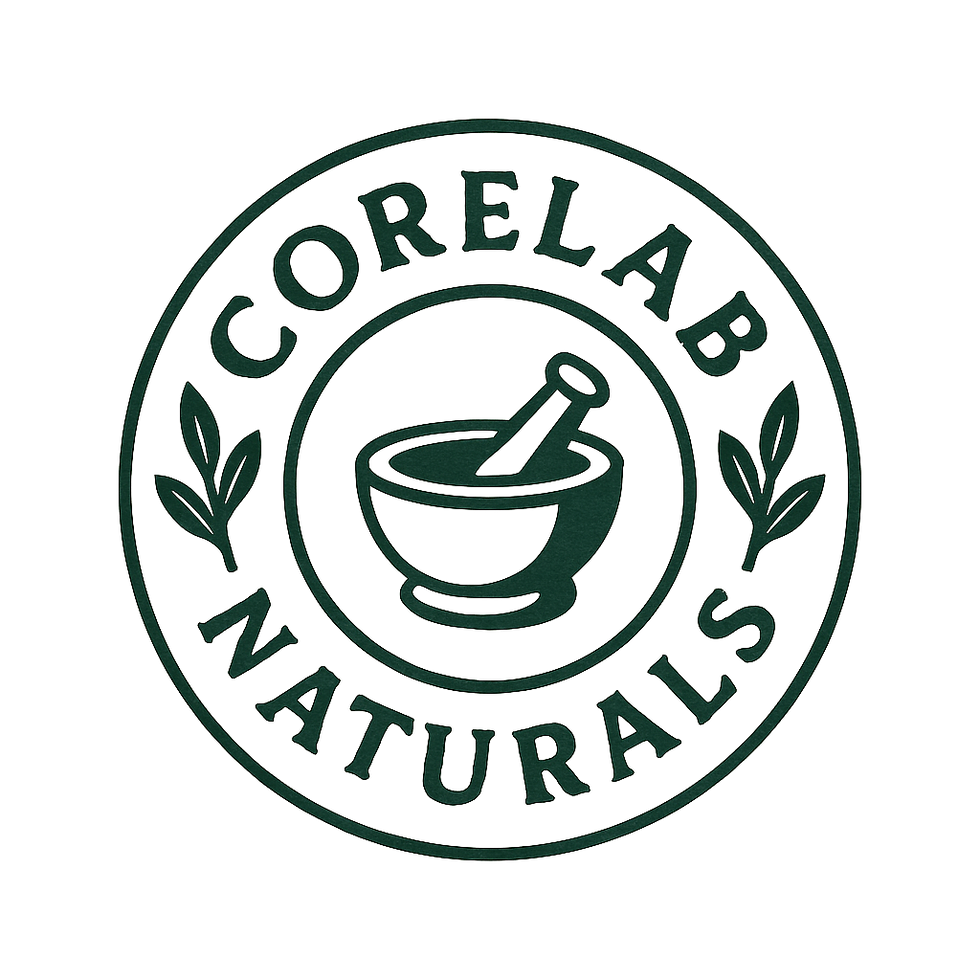The Hidden Dangers of Chemical Soaps and the Benefits of Natural Alternatives
- alex stretton
- Nov 14, 2025
- 3 min read

Many people reach for their favorite soap without thinking twice about what’s inside. Yet, the truth is that many chemically made soaps contain ingredients that can harm your skin and overall health. Choosing natural or minimal ingredient soaps offers a safer, gentler option that supports your well-being. This post explores the health risks linked to chemical soaps and explains why natural alternatives are a better choice.
What’s Inside Chemical Soaps?
Chemical soaps often contain synthetic ingredients designed to create lather, fragrance, and preserve the product. Common components include:
Sulfates such as sodium lauryl sulfate (SLS) and sodium laureth sulfate (SLES), which create foam but can strip natural oils from the skin.
Parabens, used as preservatives, which may disrupt hormone function.
Phthalates, often found in fragrances, linked to potential reproductive issues.
Artificial fragrances and dyes, which can cause allergic reactions or skin irritation.
Triclosan, an antibacterial agent that may contribute to antibiotic resistance and affect hormone regulation.
These chemicals can be harsh on the skin, especially for people with sensitive skin, eczema, or allergies.
Health Risks Linked to Chemical Soaps
Using soaps with synthetic chemicals can lead to several problems:
Skin Irritation and Dryness
Sulfates remove natural oils that protect the skin, leading to dryness, redness, and irritation. People with sensitive skin often experience itching or rashes after using chemical soaps.
Allergic Reactions
Artificial fragrances and dyes are common allergens. They can cause contact dermatitis, a condition where the skin becomes inflamed, itchy, and swollen.
Hormone Disruption
Some preservatives and additives, like parabens and phthalates, mimic or interfere with hormones. Research suggests these chemicals may affect the endocrine system, potentially leading to reproductive issues or developmental problems.
Environmental Impact
Chemical soaps often contain ingredients that do not break down easily in the environment. When washed down the drain, they can pollute water sources and harm aquatic life.
Why Natural Soaps Are a Better Choice
Natural soaps use ingredients derived from plants, minerals, and other minimally processed sources. They avoid harsh chemicals and focus on nourishing the skin.
Gentle on Skin
Natural soaps often contain oils like olive, coconut, or shea butter, which moisturize and protect the skin. They clean without stripping away essential oils, reducing dryness and irritation.
Fewer Allergens
Without artificial fragrances or dyes, natural soaps lower the risk of allergic reactions. Many use essential oils for scent, which are less likely to cause irritation when used properly.
Support for Skin Health
Ingredients like oatmeal, honey, and aloe vera found in natural soaps can soothe inflammation and promote healing. These components help maintain the skin’s natural barrier.
Environmentally Friendly
Natural soaps typically use biodegradable ingredients and sustainable packaging. This reduces pollution and supports healthier ecosystems.
How to Choose a Good Natural Soap
When shopping for natural soaps, look for these qualities:
Short ingredient list with recognizable names.
No synthetic fragrances or dyes.
Free from sulfates, parabens, and phthalates.
Contains nourishing oils and plant-based ingredients.
Certified organic or cruelty-free labels can be a plus but are not always necessary.
Try to avoid soaps that list “fragrance” without specifying natural sources, as this often means synthetic chemicals.
Practical Tips for Switching to Natural Soaps
Start by replacing one soap at a time to see how your skin reacts.
Use lukewarm water instead of hot, which can dry out skin further.
Apply a moisturizer after washing to lock in hydration.
If you have sensitive skin, test the soap on a small patch before regular use.
Consider handmade or small-batch soaps, which often have higher quality ingredients.
Real-Life Example
A study published in the Journal of Dermatology found that participants who switched from chemical soaps to natural, minimal ingredient soaps reported less skin dryness and irritation after four weeks. Many also noticed improved skin texture and fewer allergic reactions.
Final Thoughts
Chemical soaps may seem convenient and affordable, but they often come with hidden health risks. Using natural or minimal ingredient soaps protects your skin from irritation, supports overall skin health, and reduces environmental harm. Making the switch can improve your daily skincare routine and contribute to a healthier lifestyle.




Comments